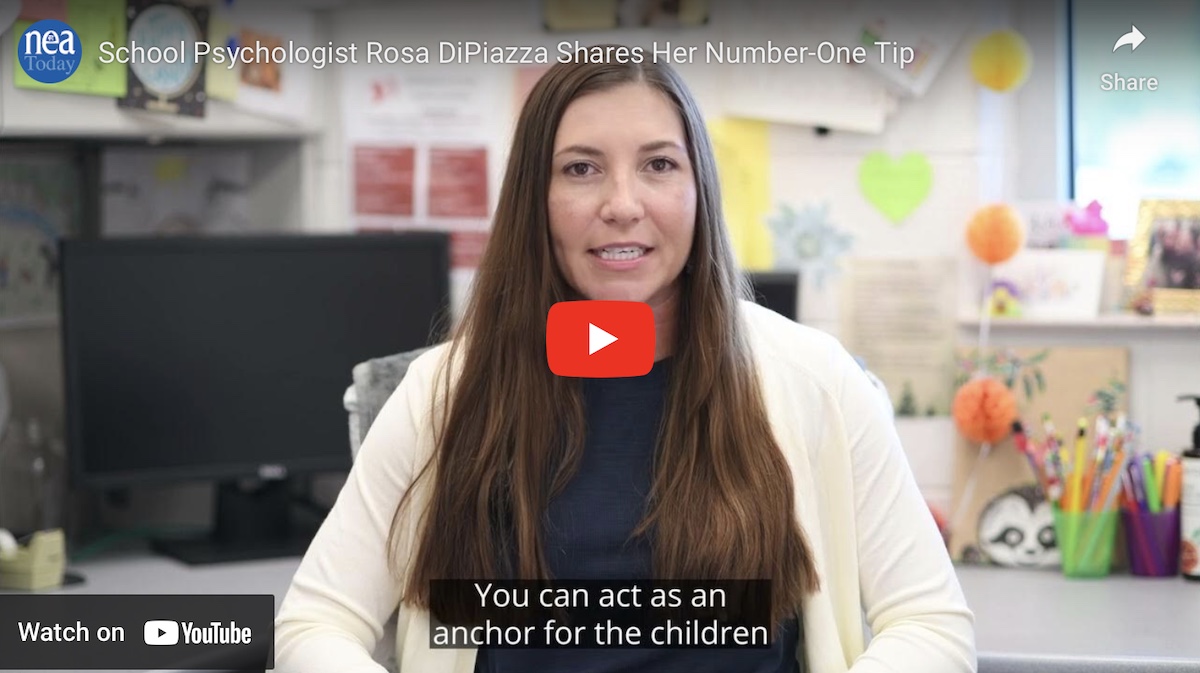High School Counselor Week
Weekly stories, facts, trends, and other information from around the country
October 5, 2023
97% of teens say they use their phones during the school day
K-12 Dive – September 27, 2023
Teachers find it difficult at times to address students’ habits of glancing at their phones more frequently, which worsened during the height of COVID-19 and remote learning when students could use their smartphones more often and freely. However, these personal devices can also have curricular benefits such as allowing students to engage in live surveys or access content and data during a lesson.
New Report: School Shootings Spawned ‘Digital Dystopia’ of Student Surveillance
The 74 – October 3, 2023
Monitoring tools have become ubiquitous in U.S. schools, but new ACLU research argues the harms outweigh the benefits. The 61-page report, titled ‘Digital Dystopia,’ also offers an in-depth look at the rise of schools’ reliance on surveillance technology over the last few decades, arguing the tools have failed to improve campus safety while subjecting students — particularly students of color and those who are undocumented, LGBTQ or from low-income households — to discrimination.
Outdated Data on Chronic Absenteeism is Slowing Pandemic School Recovery
The 74 – October 3, 2023
Student testing at the national, state and local levels has given policymakers a clear, up-to-date picture of learning loss during the pandemic. But on another key recovery metric, student absenteeism, reporting has lagged badly in many states, making it difficult to know if the hundreds of millions of dollars and thousands of hours states and school districts have spent to get kids back in school are working, and if policymakers should continue to invest resources to bring down absenteeism rates that spiked during the pandemic.
 Working with Your School Counselor
Working with Your School CounselorPost – October 4, 2023
Counselors’ Corner with Patrick O’Connor, Ph.D.
 What does “Fit” really mean?
What does “Fit” really mean?
Post – October 4, 2023
College Advice & Timely Tips with Lee Bierer
Education Department calls for K-12 pathway programs, outreach to boost college access
K-12 Dive – October 2, 2023
K-12 college counseling, targeted outreach and pathway programs for high school students can serve as strategies to encourage underserved students to apply to college in the wake of the U.S. Supreme Court’s June DOE report issued Thursday. The department called on K-12 and higher education institutions — especially those serving low-income students, communities of color and first-generation students — to establish relationships with one another to create these programs. The department also stressed the importance of the quantity and quality of high school counselors, which students in schools with large student bodies and higher levels of poverty are less likely to have access to.
Rural Schools Take on the Mental Health Crisis
NEA Today – September 29, 2023
Students of all ages and backgrounds are experiencing unprecedented levels of sadness and hopelessness. In rural communities, however, mental health challenges tend to be more severe, compounded by lack of access to services. Rural schools are disproportionately affected by staff shortages, and recruiting and retaining counselors, psychologists, and social workers in remote areas is a perennial challenge. Caseloads can be overwhelming, and in many rural communities, a school counselor or psychologist may spend hours in the car each day, traveling long distances to visit multiple districts. With the crisis growing, educators in rural districts have been mobilizing to bring more resources to their schools.
A school psychologist explains how to talk to your kids about AI
The Philadelphia Inquirer – October 2, 2023
For parents, AI poses the very real risk of children and adolescents potentially thinking of AI tools as ‘friends.’ As a doctor and parent, here’s my advice for how to prepare your kids to interact with AI.
TikTok is a trap. As a doctor, I tell parents to protect their kids from social media.
USA Today – October 3, 2023
U.S. Surgeon General Dr. Vivek Murthy has put out a meaningful advisory, that says that although social media can help more adolescents feel accepted, it quickly becomes a trap, where one third of girls ages 11 to 15 say they feel addicted to social media and close to half of adolescents say that social media makes them feel bad about their body image. I agree that TikTok and other social media platforms can be dangerous, especially for children. But a ban is not a reasonable solution and would not be any more effective than prohibiting alcohol was. There is a better way…
 Five Things that Behavioral Specialists Want Educators to Know
Five Things that Behavioral Specialists Want Educators to Know
September 28, 2023 – NEA Today
Student behavior is more challenging than ever. One-third of educators say they were attacked or verbally harassed last year. How can educators respond? Rosa DiPiazza, a behavioral specialist and school psychologist, works with teachers and students to support students’ behavioral needs. Here is some of her advice. [video and supplemental article]
Lesson Plan: Applying to College in the Age of A.I.
The New York Times – September 27, 2023
Students examine how chatbots are reshaping college admissions, look critically at what happens when they are given essay prompts, and formulate opinions about the questions raised by these tools.
Pros, Cons of High School Jobs for College Applicants
U.S. News & World Report – September 29, 2023
Working may leave high school students with less time for school activities, but jobs could be valuable on college applications.
10 Most, Least Expensive Private Colleges
U.S. News & World Report – October 3, 2023
The average cost difference between the most expensive and least expensive colleges is more than $53,000, per U.S. News data.
The FAFSA won’t open on Oct. 1 this year—here’s when you’ll be able to apply for student financial aid
CNBC – September 30, 2023
The form is being updated, and hopefully, simplified. However, implementing those changes means students and families will not be able to apply for aid for the 2024-25 school year until December 2023. A specific date has not been announced, but the DOE been communicating with families who filed the FAFSA last year to make sure they know when the application will open. In addition, there may be at least three different deadlines you need to keep track of when you’re filing the FAFSA: federal, state, and institution.
Should you apply early to college? It could affect your odds of acceptance but also your financial aid
CNBC – October 2, 2023
Applying early may improve your odds of acceptance, but there are many factors to consider, especially when it comes to financial aid.
This year the delayed FAFSA makes it harder for students to determine what their price is likely to be if they get in. More often, it’s college-bound seniors with assistance from expert college counseling who are using early decision, but there are other resources that can help. Further, students can opt out of early decision if their offer falls short of their financial aid needs, experts say.
Connecting Higher Education To The Workforce Of Tomorrow
Forbes – October 4, 2023
America is experiencing unprecedented accelerating change rivaling the Industrial Revolution in its magnitude and speed. This fast-moving societal transformation will require workers to embrace life-long learning, skills training and continuous education to stay abreast of emerging career opportunities. Experts say that, unlike prior generations, today’s workers should plan for as many as seven distinct careers over the course of their working lives. This will require continuous investment in education and training to stay relevant at work.
Education Department issues ‘landmark’ final rule to protect students in career education programs
Higher Ed Dive – September 27, 2023
The highly anticipated gainful employment regulation requires for-profit institutions to pass debt-to-earnings tests to access federal aid. These career programs must demonstrate that their graduates earn more than the student loan debt they’ve incurred. Graduates can pay no more than 8% of their annual earnings toward debt, or no more than 20% of the earnings that the department considers discretionary, under the rule. However, the for-profit sector is arguing the rule unfairly targets those institutions.
Subscribe to our Weekly Emails
Fastweb’s Student Contributors
sponsored by Fastweb
Student writers share school-related experiences for all students.
Go-to Guide: Experts Peel Back the Layers of the College Application Process
University of Mary Washington – October 2, 2023
Between them, University of Mary Washington’s Melissa Yakabouski and Sarah Lindberg hold a half-century of college admissions experience. Both recruited as admissions counselors upon earning their own bachelor’s degrees, they work together to break the often-perplexing college application process into bite-size pieces prospective students and their parents can easily digest. And this team of two is here to help by tackling a few of families’ most pressing questions.
College Application Submission, 3 Final Checks
Georgia Tech Admission Blog – October 4, 2023
If you are a senior who is logging in multiple times to your Common Application to be sure everything is saved; if you find yourself going down YouTube rabbit holes about “essays that worked;” or if you find yourself obsessively re-ordering your Activities list, here is your pre-flight safety video, aka pre-submission final checklist, designed to give you some solace and confirmation that you are set and clear.
Opinion: Students Need a Holistic Approach to Pandemic Recovery
EdSurge – September 29, 2023
Millions of students across the United States spent their summers in learning and enrichment programs, many of which employed intensive tutoring designed to bring math and reading scores up to grade level. These efforts can be important and life-changing, yet research finds that increased learning time alone will not be enough to recover from the pandemic’s devastating effects on learning.